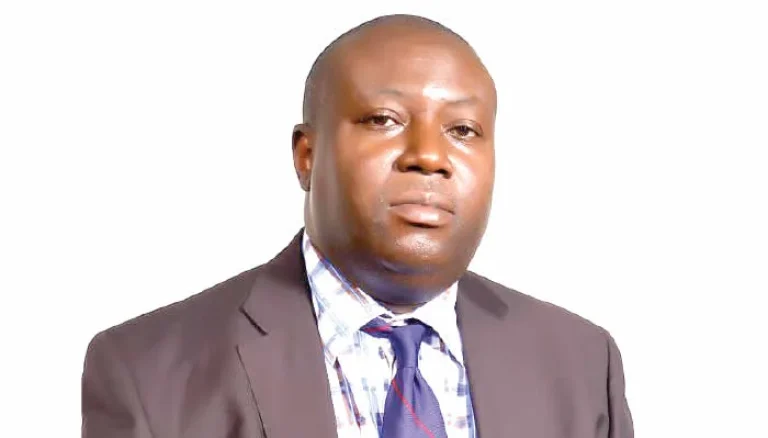
As a result of a scarcity of personnel, hospitals around the nation have cut back on the amount of outpatients and procedures they perform, which is having a negative impact on patient care.
The PUNCH reported that yesterday’s investigations revealed that nearly all healthcare institutions were struggling with a scarcity. This was due to the high volume of patients seeking treatment at the more cheaper public hospitals, which were outnumbered by the private sector.
On Wednesday, the head of the House of Representatives’ health committee voiced concern over the closure of at least five wards at the Lagos University Teaching Hospital in Idi-Araba, affecting approximately 150 beds, citing a lack of medical staff as the reason.
According to Dr. Amos Mogaji, the committee chairman, the five wards had to be closed because, despite the high volume of patients seen each day, there were insufficient staff to run them.
The results demonstrated that LUTH was not the sole healthcare facility facing this issue; health workers at other hospitals also complained about the overwhelming workload caused by the departure of their colleagues.
Despite Sunday’s inability to provide an exact estimate, the Nigerian Medical Association (NMA) had previously stated that 2,000 health personnel were fleeing the country annually. This was followed by the Nigerian Association of Resident Doctors (NARD) a few years later.
In addition, the NARD announced in January 2023 that over 2,000 members departed the nation in 2022, according to a poll it had carried out.
But 1,197 doctors have departed for the UK since May 29, 2023, a clear indication that the severe economic circumstances in the nation are forcing many medical professionals to flee.
In the past two years, several health institutions in Nigeria have lost doctors to Japan. These include the Lagos University Teaching Hospital, the Federal Medical Centre in Abeokuta, the Aminu Kano University Teaching Hospital in Kano, and the Obafemi Awolowo University Teaching Hospital in Ile-Ife. This suggests that over four thousand doctors may have departed the country during this time.
Nearly two hundred medical professionals, including fifty medical consultants, have departed from the FMC in search of better opportunities overseas.
Medical staff shortages have reportedly forced the hospital to cut back on outpatient care and elective surgery.
If a patient’s health is not in grave danger and the procedure may be safely postponed, such as cataract surgery, then the procedure is considered a “elective surgery” (veryhealth.com). In order to save lives or prevent harm, a nonelective (or emergency) operation must be carried out without delay.
Approximately 50 physicians departed hospitals in Benue State, and information reached us that 789 nurses and 162 physicians had departed Kano State.
According to one of our reporters, almost three wards at the OAUTH, Ile-Ife, ceased accepting patients because to a lack of staff, and as many as sixty-five doctors departed in the past year.
According to an anonymous NARD hospital official, “65 doctors left OAUTH last year.” Forty-five returned after finishing their training, whereas twenty-one departed for other nations without completing it.
Additionally, he mentioned that three hospital wards had ceased accepting patients as a result of insufficient staffing.
“Just one of our three emergency rooms is really admitting people right now. Inadequate staffing has forced two additional departments in the emergency ward to stop admitting patients.
Also, there aren’t enough nurses, so the mental unit isn’t taking in any new patients. There is a critical shortage of personnel in the paediatric unit. Typically, the hospital does not have a enough number of staff members. According to him, there are some people who could work if given the chance.
At the time of this report’s filing, our correspondent had sent a text message to Kemi Fasooto, the hospital’s public relations officer, but she had not answered, so we were unable to reach OAUTH management for a comment to the claim.
FMC Atiku
While speaking at the FMC, Abeokuta, Dr. Jimoh Saheed, Chairman of the Medical and Dental Consultant Association of Nigeria, revealed that the facility had lost around fifty consultants and one hundred fifty resident doctors to japa syndrome in the aforementioned four years.
The healthcare system in Nigeria has been and continues to be impacted by the japa syndrome, he stated. Over the past four years, FMC Abeokuta has lost almost fifty consultants in the fields of medicine and dentistry. The previous figure should be multiplied by three to get the total number of resident doctors who departed for better opportunities.
Thus, it may be inferred that the hospital is facing a serious staffing crisis, which has negatively impacted patient care and service delivery. Every clinic has had to cut back on the number of patients seen, and the number of elective cases seen in the operating room each day has also decreased.
The current situation necessitated the consolidation of some of our emergencies in order for the unit to function effectively. Because of the japa wave, service delivery, medical specialist training, and research have all been impacted, and as a result, we will not be able to operate optimally.
According to Jimoh, the government should declare a health emergency and immediately begin a series of measures, such as the huge recruitment of a wide range of health personnel and the outfitting of hospitals to worldwide standards.
Also, Mrs. Lola Idowu, who is the chairman of the National Association of Nigeria Nurses and Midwives at Ogun State Hospital Unit in Ijaye, Abeokuta, has stated that there must have been at least forty nurses (including retirees) who have departed the premises over the past three years.
More than half of the medical doctors employed by the state Health Management Board in Benue State have departed the nation in quest of better employment opportunities, according to the NMA chapter in the state.
The situation was characterised as pitiful by Dr. Usha Anenga, the NMA Chairman.
According to Anenga, the number of doctors at the Health Management Board has dropped from over a hundred to less than fifty. The Federal Medical Centre no longer has the consultant and epidemiologist that we were previously working with. Additionally, the University Teaching Hospital’s gynaecologist has departed.
The remaining resident doctors at the University of Jos Teaching Hospital in Plateau State are complaining about the staffing crisis, and almost 100 of them have quit the hospital.
More than 70 resident doctors departed the hospital last year, according to Dr. Ishishen Artu, President of the ARD in JUTH.
There is little difference between the condition in JUTH and the rest of the nation regarding japa syndrome. There were 410 members when I took office as president of ARD around eleven months ago.
However, we were around 340 at our most recent nominal roll from accounting. According to Artu, that’s why doctors have been leaving the hospital in large numbers.
To prevent the national health system from collapsing, he demanded that the government step in and address the scarcity of personnel, which he attributed to unstable employment, low social benefits, and outdated medical technology.
The remaining members of my generation are not having an easy time of it, he continued. We are receiving three to five times the amount that our comrades outside of the country, such as those in South Africa and Ghana, are receiving in Nigeria.
The current scenario prevents them from returning home to practise, despite their desire to do so. In order to prevent a total collapse of the health sector in the country, the government must take a comprehensive approach to addressing the issues.
Hit by Kano hospitals
The Nigerian Medical Association reports that 162 physicians and 789 nurses have left Nigeria from Kano State alone.
around the same time period, around 162 medical doctors also left the country for foreign countries.
This information was shared by Dr. Abdullahi Sulaiman, the Chairman of the Nigerian Medical Association’s Kano State Chapter, during a phone discussion with our reporter on Saturday.
There has been a mass exodus of medical professionals and other healthcare workers from the state. The precise number of medical professionals who have departed the nation is therefore unknown to me. You can only get an estimate from me.
Almost all healthcare workers, not just doctors, are affected by this terrible scenario. Among the many destinations they’re departing for on a weekly basis are the Gambia, Somalia, Rwanda, and Saudi Arabia, he added.
He claimed that many issues were stemming from the lack of such workers, who were subjected to an unproductive workplace that led to overwork, fatigue, and burnout.
“We were planning to open some wards at the Aminu Kano Teaching Hospital about two years ago, thanks to some generous donors. However, we had to postpone the opening until later on because we didn’t have enough healthcare workers to staff them,” Sulaiman explained.
He mentioned that out of the five anesthesiologists working for the AKTH, three had left for greener pastures overseas.
The government has not made any concerted efforts to resolve the matter, despite our repeated discussions about it.
In his words, “the government must take deliberate action to address the issue” if it wants to keep doctors and other health workers from leaving the nation.
1,197 physicians relocate
This report found that as of May 29, 2023, around 1,197 doctors trained in Nigeria have migrated to the UK.
Nigeria is quickly approaching Pakistan in terms of the number of doctors educated abroad in the United Kingdom. There are more doctors from India than any other countries in the UK at the moment.
This is in accordance with the UK General Medical Council’s registry. Medical professionals in the United Kingdom are required by law to be listed on the General Medical Council’s (GMC) official registry.
The overall number of Nigerian doctors licenced to practise in the UK is 12,198, even though approximately 1,197 were licenced between May 29, 2023 and December 1, 2023.
Nevertheless, this number does not account for Nigerian physicians who received their training elsewhere.
Currently, there are 73 doctors from Nigeria who specialise in anaesthesia and ICU medicine, 61 in emergency medicine, 241 in general medicine, 207 in obstetrics and gynaecology, 17 in occupational medicine, 16 in ophthalmology, 164 in paediatrics, and 50 in pathology.
Out of them, 35 are devoted to public health, 357 to psychiatry, 29 to surgery, and 135 to other medical specialties.
There has been growing worry about the migration rate of medical doctors. Nigeria may import doctors in the future, according to the Nigerian Medical Association, which bemoaned the country’s high incidence of medical brain drain.
Only 233 Nigerian physicians emigrated to the United Kingdom in 2015. In 2016, the total was 279, while in 2017, it was 475. The number jumped to 852 in 2018 and 1,347 this year.
Despite the GMC’s closure due to the COVID-19 pandemic in 2020, the figure remained at 833. The projected number for 2021 is 932.
Regarding the brain drain, Prof. Emem Bassey, who chairs the committee of chief medical directors of federal tertiary hospitals, made the following comment: “Some African countries are also beginning to poach from Nigeria…
“We need to send our experts to the West Coast. The wages in countries like Gambia and Sierra Leone range from $3,000 to $4,000 per year, and many people are taking advantage of this trend. Their income at home is roughly three to four times lower than this. This means that individuals are starting to leave for other African countries as well.
There is a severe shortage of personnel in the health care industry right now. A large number of medical professionals, including doctors and nurses, are departing the field. A large number of medical personnel, including physicians, nurses, physiotherapists, radiologists, and laboratory scientists, are departing the nation.
A large number of medical staff members had departed the institution, according to Dr. Salmon Abeeb, who is the NARD Chairman at the Lagos State University Teaching Hospital.
“It impacted us because LASUTH is the closest to the airport,” he said. In most cases, the system’s employees quit after a month or two. I can assure you that half of the eighteen to twenty doctors and consultants that LASUTH hired last week will have left by the end of next month.
Abeeb further by saying that doctors were becoming ill from their workload. He also disclosed that, owing to a lack of personnel, LASUTH was on the verge of closing its wards.
Because of burnout, which is causing doctors to fall sick every day, the burden is increasing, and we are now expected to handle everyone’s job.
“The resident doctors are already griping about the excessive workload, so we will soon shut down, even though we haven’t yet.”
“The issue of the shortage of manpower is nationwide,” claimed an anonymous medical expert from one of the government hospitals in the South-West. The scarcity affects all public hospitals, and it is caused by individuals leaving Nigeria for other nations. Medical professionals are making pitiful wages.
On top of that, we have very few physical spaces to work with. In the course of my work, I have encountered numerous stressful situations. Some medical directors are skilled at confusing their doctors to keep things moving along, but other hospitals will urge you not to bring more than one major and one small case every day due to staffing shortages.
“As I speak with you, I am only collaborating with a house officer, even though my unit’s requirements call for two senior registrars and four registrars.”
Legislation to prohibit medical tourism, he said, would compel political officials to enhance the nation’s healthcare system, while better hospital infrastructure and higher salaries for medical professionals would discourage them from seeking better opportunities abroad.
“The people in charge of us are intelligent. Paying medical professionals a living wage should be priority number one. Additionally, hospitals should upgrade their infrastructure. Take the scenario where you need to operate on a patient who requires intensive care unit cover. Even though the ICU is available, there might not be ventilators on hand. And even if they are, there might be an electrical issue.
A fellow healthcare professional who is a friend of mine has departed the nation. He informed me last time that he was going to receive his income for a year in Nigeria in exactly one month.
Lastly, people in political position will be prepared to help enhance the country’s healthcare system if they are required by law to use domestic facilities for medical care and cannot leave the country unless absolutely necessary.
“Health workers will be willing to stay if all these are done,” he stated.








